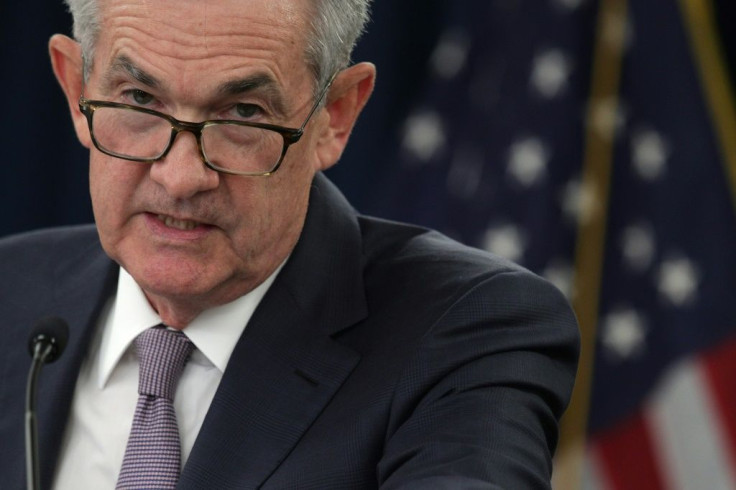Tuesday's Stock Market Open: US Equities Open Flat On Lack Of Concrete Progress In China Trade Talks, Pause From Monday's Gains

U.S. equity indexes were moderately higher on Tuesday as traders await progress of a phase one trade deal between China and the U.S. and mull some generally optimistic remarks on the economy by Federal Reserve Chairman Jerome Powell.
The Dow Jones Industrial Average gained 41.14 points to 28,107.61 while the S&P 500 was up 5.32 points to 3,138.96 and the Nasdaq Composite Index gained 17.11 points to 8,649.60.
Trade talks between China and the U.S. were conducted by phone on Tuesday and officials “reached consensus on properly resolving relevant issues” and promised to discuss other points of the phase one deal, China’s Ministry of Commerce said in a statement. The U.S. Trade Representative’s Office confirmed a meeting took place.
Global Times reported officials likely discussed such matters as tariff removal and agricultural purchases.
“We take any positive pronouncements on a trade deal with healthy skepticism given how long this has dragged out,” Rabobank strategists wrote Tuesday. “It would seem that any major progress on the trade deal front will be hindered by the ongoing unrest in Hong Kong.”
Federal Reserve Board Chair Jerome Powell took a somewhat upbeat view of the U.S. economy in comments made Monday evening in Rhode Island to the Greater Providence Chamber of Commerce.
Powell said with the jobless rate near a 50-year low of 3.6%, there is “plenty of room” for wages to rise and for more people to join the workforce.
“Recent years’ data paint a hopeful picture of more people in their prime years in the workforce and wages rising for low- and middle-income workers,” Powell said. “But this is just a start: There is still plenty of room for building on these gains. The Fed can play a role in this effort.”
Powell said the three cuts in interest rates this year have prompted more homebuying which in turn has helped continue the economic expansion. “Fortunately, the outlook for further progress is good: forecasters are generally predicting continued growth, a strong job market, and inflation near 2%,” he said.
But Powell pointed out the negative effects of persistently low inflation.
“Around the world, however, we have seen that inflation running persistently below target can lead to an unhealthy dynamic in which inflation expectations drift down, pulling actual inflation further down,” he said. “Lower inflation can, in turn, pull interest rates to ever-lower levels. The experience of Japan, and now the euro area, suggests that this dynamic is very difficult to reverse, and once under way, it can make it harder for a central bank to support its economy by further lowering interest rates. That is why it is essential that we at the Fed use our tools to make sure that we do not permit an unhealthy downward drift in inflation expectations and inflation.”
For now, Powell added, monetary policy is “well positioned to support a strong labor market and return inflation decisively to our symmetric 2% objective. If the outlook changes materially, policy will change as well. At this point in the long expansion, I see the glass as much more than half full.”
The S&P CoreLogic Case-Shiller U.S. National Home Price Index revealed home prices rose 3.2% nationally on an annualized basis in September, up from a 3.1% gain in August. Phoenix, Charlotte and Tampa witnessed the highest annual gains, at 6%, 4.6% and 4.5%, respectively.
“After a long period of decelerating price increases, it’s notable that in September both the national and 20-city composite indexes rose at a higher rate than in August while the 10-city index’s September rise matched its August performance,” Craig J. Lazzara, managing director and global head of index investment strategy at S&P Dow Jones Indices, wrote. “It is, of course, too soon to say whether this month marks an end to the deceleration or is merely a pause in the longer-term trend.”
The U.S. trade deficit in goods fell by 5.7% in October to $66.5 billion, a 17-month low. Economists had expected a $71.8 billion deficit. The report also showed an 0.2% increase in wholesale inventories and a 0.3% rise in retail inventories.
The Conference Board reported that its consumer confidence index fell to 125.5 November, down from 126.1 in October. It marked the fourth straight monthly drop. Economists had expected the index to rise to 126.6 in November.
Lynn Franco, senior director of economic indicators at the board, said the data “suggests that economic growth in the final quarter of 2019 will remain weak.” But she added that overall, “confidence levels are still high and should support solid spending during this holiday season.”
The Commerce Department said new home sales fell 0.7% to a seasonally adjusted annual rate of 733,000 units in October while the figure for September was revised higher to 738,000 units. Economists had expected an increase of 1.1% in October.
Shares of Best Buy (BBY) jumped to a 52-week high after the retailer posted earnings and revenue that exceeded analysts’ expectations and also raised its earnings guidance.
Shares of Chinese e-commerce giant Alibaba (BABA) surged 6.6% in its first day of trading on the Hong Kong stock exchange.
Audi said it will cut 9,500 jobs in Germany as part of a restructuring plan,
Overnight, Asian markets were mixed with the Hang Seng slipping 0.29% while Japan's Nikkei 225 gained 0.35% and China's Shanghai Composite added 0.03%.
European markets were mixed with the FTSE 100 up 0.09% while Germany's DAX fell 0.08% and France's CAC 40 also slipped 0.08%
Crude oil futures gained 0.38% to $58.24 per barrel and Brent crude were up 0.59% at $62.99. Gold futures were down 0.1%.
The euro was down 0.02% to $1.103 while the pound sterling slipped 0.35% to $1.2854.
© Copyright IBTimes 2024. All rights reserved.





















